WSOP Main Event Winners – In Their Own Words
Poker’s World Champions Tell Their Stories
 Written by the CardsChat Editorial Team
Written by the CardsChat Editorial Team15 mins
It’s the poker tournament every player wants to win: the WSOP Main Event. Millions of dollars and a gold WSOP bracelet are attractive enough, but this tournament comes with an additional, unique prize: the title of poker’s World Champion.
CardsChat talked to seven of these World Champions – Phil Hellmuth (1989), Chris Moneymaker (2003), Greg Raymer (2004), Jamie Gold (2006), Joe Cada (2009), Ryan Riess (2013) and Martin Jacobson (2014) – to find out what it takes to win the WSOP Main Event, what happened next, and what advice they’d offer to new players.
For more interviews with the biggest names in poker, be sure to check out the CardsChat podcast.
WSOP Winners: Before the Win
Phil Hellmuth ($755,000, 1989)
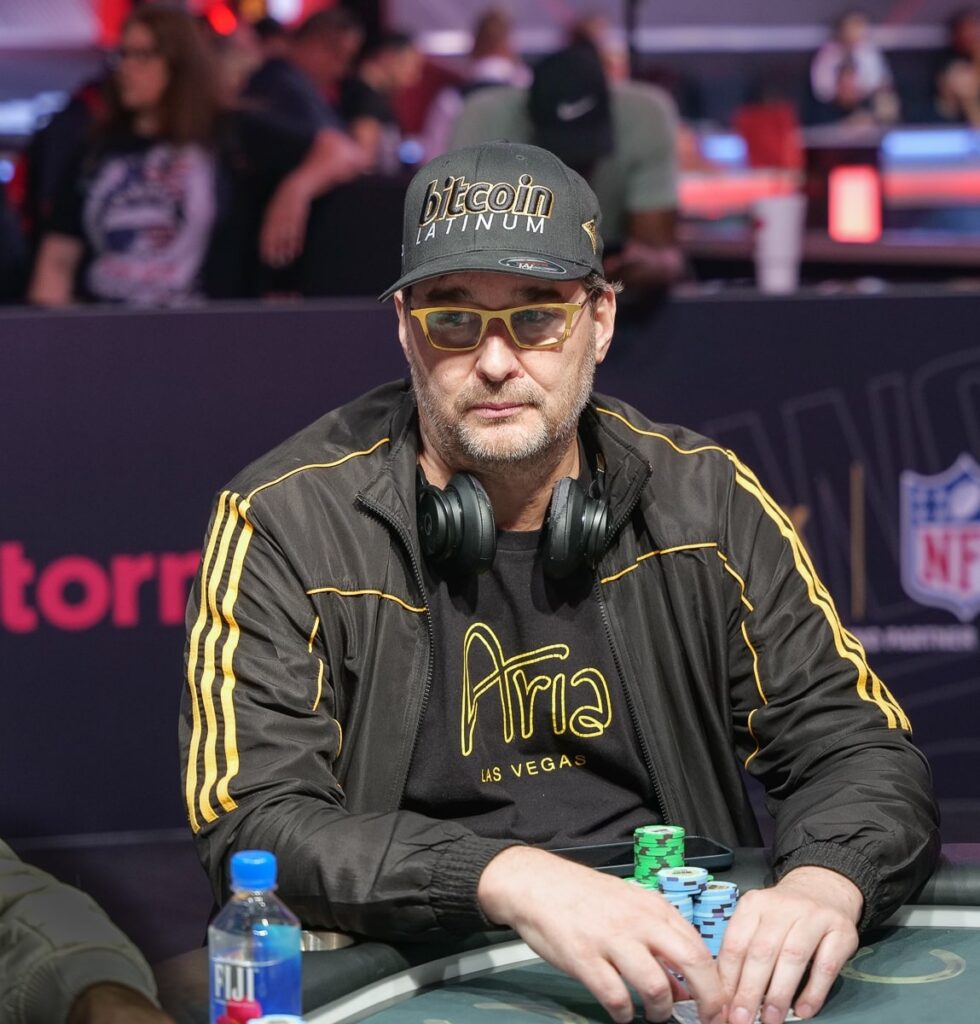
“I remember the first time I ever played poker in a casino, I played with a very famous actor named Telly Savalas. I was 21, I’d been a professional poker player for a while and I had about $18,000 to my name, which was a lot of money. I remember thinking it was time to take the next step. I’d crushed the games in Wisconsin for a year or two, and was ready to hit the big time.
I went to Las Vegas, to the Dunes Hotel and Casino (which was replaced by the Bellagio), sat down in a game on New Year’s Eve and Telly Savalas was on my left. He was one of the biggest actors in the world, the star of a television show called Kojak, and he was wearing a tuxedo.
They were playing a game that I really hadn’t played before: Seven Card Stud Eight or Better. So I wasn’t particularly good at that game, but I remember playing close to 40 hours straight!”
Jamie Gold ($12m, 2006)
“My grandfather was a gin rummy master and that’s really how it all started. Since I was maybe three years old I was really into cards, and I would sit on my grandfather’s lap and he would play every Friday, Saturday and Sunday night. It was it was such a great education and I’m sure that that’s where a lot of my card sense came from.
My friends remind me, “Do you remember taking all of our money playing poker during high school?”. I took it a lot more seriously than my friends. I wouldn’t say that I was better, I just cared more. I loved the game and it was something that I had always wanted to get better at, but there was not a lot of opportunity. Back then there were maybe two or three books so there wasn’t much ability like they have now to learn every single thing there is to know about the game.
I only heard about the World Series of Poker from watching the movie Rounders. Once I saw that movie the idea of the WSOP just kind of hooked me, and I remember telling one of my best friends, “I’m going to train and go and win that thing”. They said “Yeah, sure”.
It’s true: everyone does think that. But I’m a little more competitive than most people.”
“I took it a lot more seriously than my friends. I wouldn’t say that I was better, I just cared more.”
Martin Jacobson ($10m, 2014)
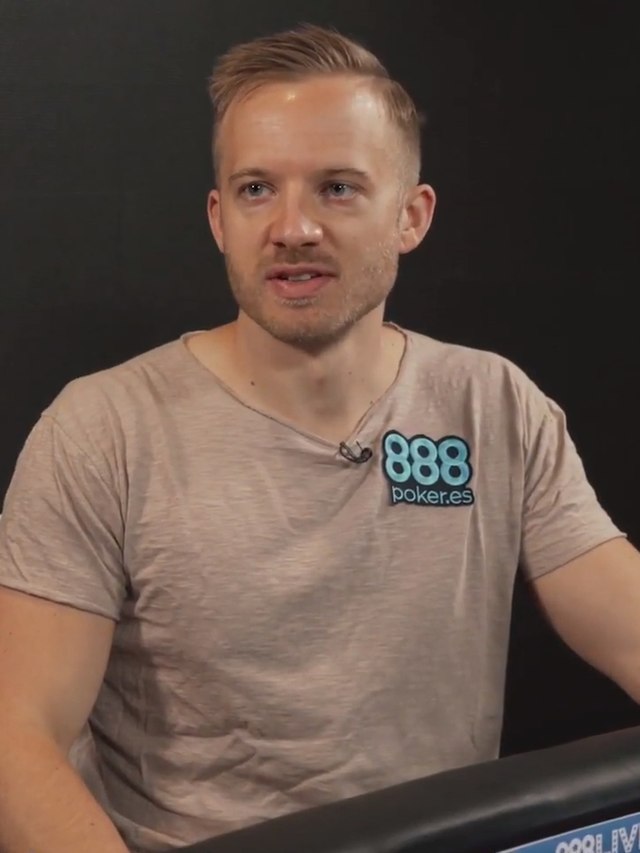
“In 2008 I managed to win a seat to the WSOP Main Event. I was only 20 years old at the time and this was back where you had the option to either take the money – $12,000, I believe – or go and play, so it was a bit of a dilemma.
I knew exactly what I wanted to do, of course, I wanted to go and play, but I had no experience playing live tournaments. It didn’t go well.
But then a month after the WSOP I got second in the PokerStars Sunday Million, and then qualified for EPT Budapest and managed to get third place. Poker was so new to me, I was so passionate about it: it was a dream come true.
When I went pro I was learning as I went and just learning from experience. I read a few poker books and then the rest was just talking strategy to friends, playing and seeing what everyone else was doing, copying what I thought was good, then trying to differentiate what I thought was bad and developing my own playing style.”
Ryan Riess ($8.3m, 2013)
“Two months before I graduated I was working as a poker dealer. I had $2,000 to my name and one of my friends and I drove to Chicago for a poker tournament.
We got to Chicago at four in the morning and all the hotels were sold out, because this was a huge circuit event, so we ended up playing blackjack from four in the morning until noon, when the tournament started.
I had $2,000 to my name and I bought in with the whole thing at the blackjack table. I actually got down to $100 and then spun it back up to $2,000 and then stopped – if I’d lost that last hundred dollars I wouldn’t have even been able to play the tournament!
The tournament went great and we ended up chopping it three ways. That’s how it all started – I graduated from Michigan State and then just started playing full-time. As soon as I finished my final exam I got in the car and drove straight to Borgata.”
“I bought in with the whole thing at the blackjack table…if I’d lost that last hundred dollars I wouldn’t have been able to play the tournament!”
Greg Raymer ($5m, 2004)
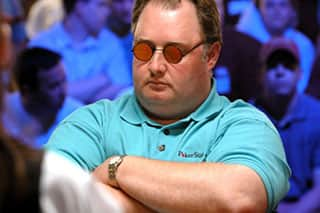
“I had been playing poker seriously for about 12 years before I won the Main Event.
I had played with friends in college, and of course none of us had a clue what we were doing, we were really horrible poker players, but it had always been fun.
Then someone said something about pot odds and I’m thinking “What’s that? Never heard of that before.”
So I went to a used bookstore and bought three books, one of which was The Theory of Poker by David Sklansky, so that was my first real resource to learn how to be a better player.
My first big win, $2,300 or so, was in a pot limit Hold’em game when I lived in San Diego. I came home late at night and woke my wife up by sprinkling hundred dollar bills onto her.
My last job as a lawyer was in Connecticut, near Foxwoods. They had a great no limit Hold’em tournament every Tuesday night and I used to win that thing four or five times a year, maybe close to 10 percent of the times I entered. So I was playing that tournament on Tuesdays and playing cash at the weekends, building up my bankroll more and more. By the time I won the Main Event, my main cash game at Foxwoods was $75-150 mixed.”
“I came home late at night and woke my wife up by sprinkling hundred dollar bills onto her.”
Joe Cada ($8.5m, 2009)
“I started getting my first live experience when I was 18. There was an Indian reservation I would travel to and play, it was smaller but it was fun to play. Or I’d go up north and visit my friends at college at Central Michigan and then just play at the casino there. They had some decent games and some tournaments.
Then when I was 19, Canada was close, so it was a 45-minute drive and they had a good $10/20 game and that was some good experience, I made some good money in that game. By the time I was 21 I had decent experience live, and I had a ton of experience online, so I felt comfortable playing live.”
Chris Moneymaker ($2.5m, 2003)
“Poker was always a hobby for me. Back before the World Series Main Event it was just something I did for fun. I loved playing poker – I would play poker for 60 hours in a weekend; me and my friend would go down to Tunica and we wouldn’t get a hotel, we would stay up the whole weekend playing.
We just loved playing poker, it was something that we just enjoyed doing, and I was actually a profitable player from the beginning, because people were so bad!”
“I would play poker for 60 hours in a weekend…we wouldn’t get a hotel, we would stay up the whole weekend playing.”
Winning the WSOP Bracelet
Chris Moneymaker
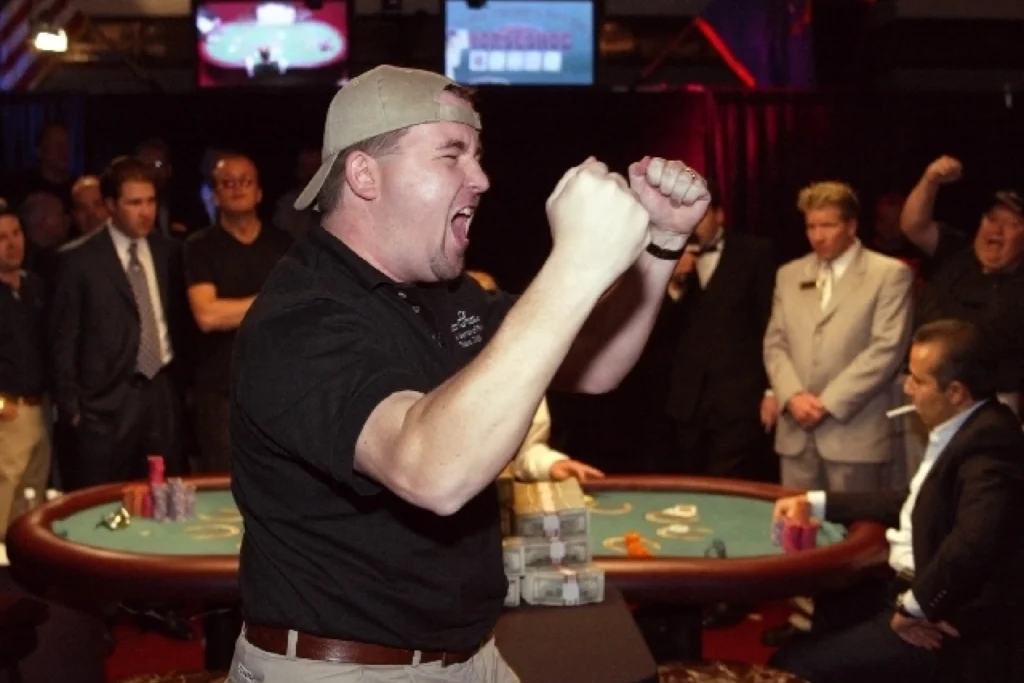
“Poker back then was a bit simpler than it is today. Back then one of my biggest strategies was to play in position and if people checked to me, I’d bet, and I would take it down a lot of times. And that was my strategy almost for the first three days.
It’s really sad, but that’s all I had to do, because people generally would bet when they had it. There was a lot of donk-betting, there was a lot of leading into pots when people had things. And back then ranges weren’t really a thing – you put people on specific hands, like ‘this guy has aces, ace-king or nothing’. That was the ranges.
The other thing that people did back then, that I picked up online, was bet-sizing errors. Playing online, that’s all I ever focused on was bet-sizing – especially on the turn. On the turn someone’s bet-sizing always gave away the strength of their hand, and you could see it in the World Series. People would vary their bet-sizing drastically on the turn, based on their holdings, and they weren’t that crafty with it back then. It was something that I definitely capitalized on back in 2003.”
Phil Hellmuth
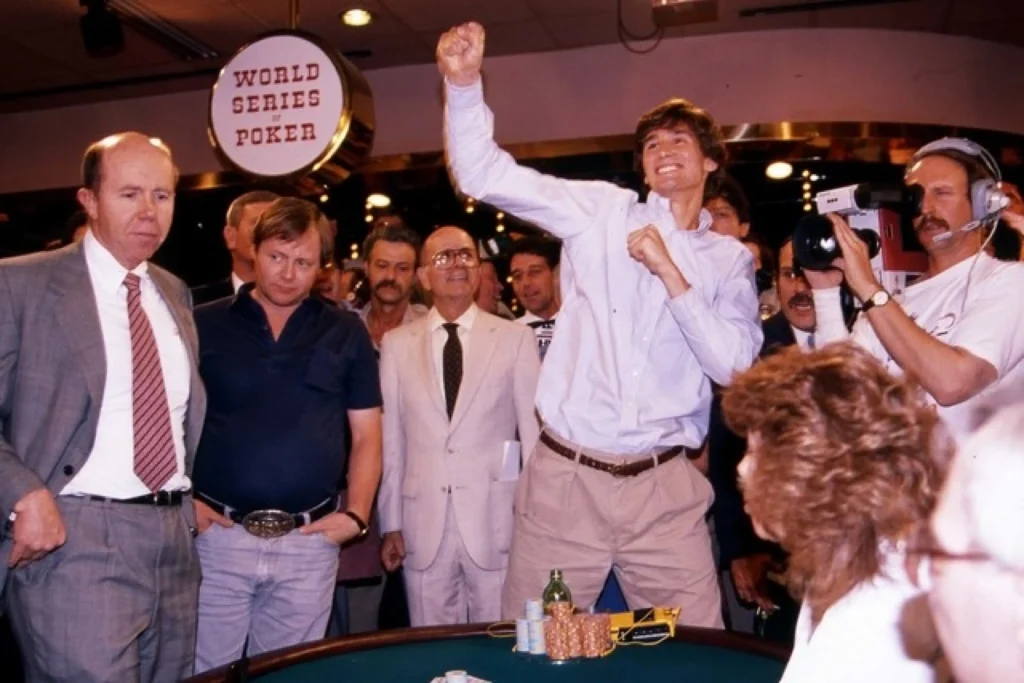
“It was the most memorable hand of my life: two black nines, heads up against Johnny Chan.
To back up a little bit, the blinds were 5k/10k and I opened for 35k with A-7 suited. Chan raised 130k more and I just thought, “What’s going on? He’s just changed styles, that’s a power raise.” So I folded. I didn’t study long, I just thought “He probably has me beat, I can’t call.”
Then, four hands later I looked down at two black nines. I made it 35k again and I just knew, if he raised, I was going all-in. He went ahead and raised 130k more, so I said “All-in,” instantly. He called for his last 430k – with A-7 suited.
I’d already watched Johnny hit his cards in four huge tournaments in a row: the World Series in ‘87 and ‘88 and the Hall of Fame Main Events in ‘87 and ’88. He’d gotten it in with A-T against A-J, for example, and he’d kept hitting his cards.
At that point I had 100% of myself, no one had a piece, and it was such a huge disparity: $755,000 for first and only $300,000 for second, so we made a deal: I would get $450,000 for second place, and $655,000 for first place.
The flop came down king, king, ten, and then a queen. And I remember thinking to myself, “Man, I’m 2.5-1 favorite, just like I was before the flop, but only one to go.” But I was expecting him to get there, so I was preparing for him to hit the card, to not be stunned and not do something stupid. Because by then I had already played heads-up a couple of times for tournaments, and you can’t let one unlucky card put you into shock.
Then, of course, when the six of spades came off, my hands went shooting up into the air. I turned around to look for my father. He ran up the aisle and security stopped him because we had all the cash on the table. I waved him through and I gave my dad this amazing hug. It was the best moment of my life to that point. And supporting me was a guy who hated the fact that I was in poker, who didn’t want me to be in poker, but the hug he gave me was just one of those lifetime great moments.”
Greg Raymer
“At what point did I believe I was on a special run? Never did. If you had asked me at the beginning of day one, “Are you going to win?” my answer would have been “Well, I’m better than average, so maybe it’s one in a thousand,” and if you’d asked me again later, when I’d doubled my starting stack, it would have been more. If you’d asked me when heads-up started and I had 70% of the chips, I might have said I was a 3-1 favorite to win it all. I definitely didn’t feel like it was ‘meant to be’.
I’d already played enough poker by that point to have gone from big stack to next guy out, or from short stack to winning the whole thing, and so I knew that none of this is written in stone.
So it really was just what percentage of the chips do I have, and then if I think I’m above average in skill then I can size that number up a little. But if you have half the chips and you’re at the average skill level of the remaining field, it’s 50%. Whether that’s one opponent or 10 people, if you have half the chips with 11 people left you’re not any more likely to win the whole thing than if you have half the chips heads up, unless you have a skill advantage. So at no point did I ever think ‘this is mine, it’s destiny’.”
Joe Cada
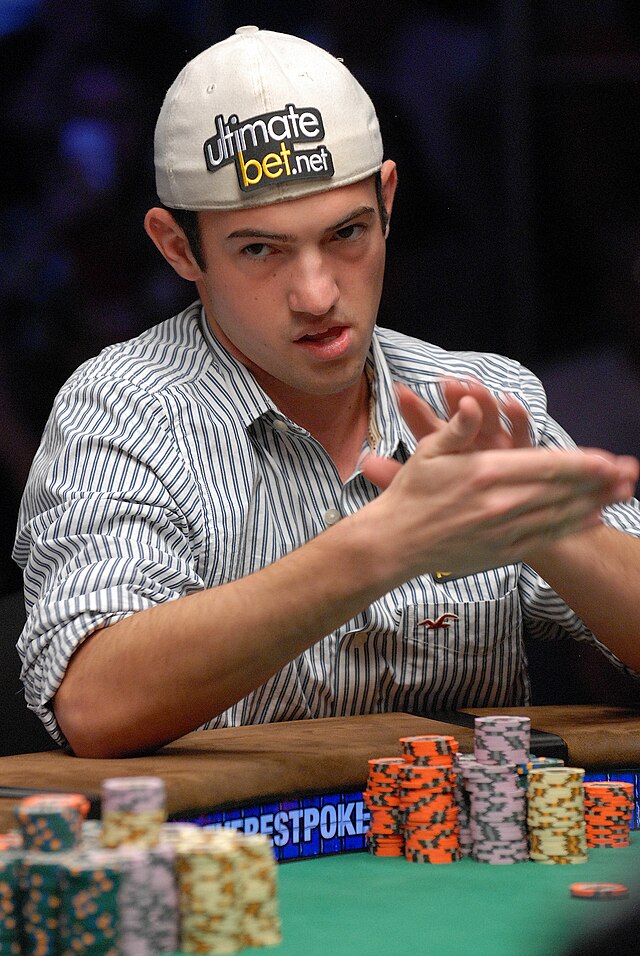
“Going up to the World Series, I got approached by one of my good friends and he asked me if I would be interested in being backed.
Tournaments have a lot of variance and it can get real expensive out during the summer, and I always try to be responsible in terms of never risking too much of my bankroll and stuff. So I got backed and played basically a full schedule of $2,500s and $1,500s and I had a few good runs. I guess with the Main Event I got lucky with the table draw and ran super-hot the first day, and just coasted the whole way.
If anything, being backed made me a little bit more disciplined, just because it wasn’t my money. I felt playing with someone else’s money that I really should play everything correctly – in terms of what I think is correct – so I just played my game and what I felt comfortable with.”
Jamie Gold
“I tried to figure out a style that nobody had really used before, because I was never going to be the best player in the world. I just thought, “What could I do that people would not be able to understand well enough?” So, a little bit of the ‘Jedi mind tricks’ and neurolinguistic programming, and I would study a lot of the things that had nothing to do with the game of poker but more about psychology. I had to figure out a way to win, within the rules, and that wasn’t just about playing the best poker. We call it ‘speech play’ today.
I also got very, very lucky and things went my way. I was able to read people’s hands. It was a combination of luck and working really hard, and creating a way of playing that people weren’t used to. I was also just in a zone and sometimes you just get yourself into a certain kind of place where you’re almost seeing the cards that everyone is playing.”
“I would study a lot of the things that had nothing to do with the game of poker but more about psychology…We call it ‘speech play’ today.”
Martin Jacobson
“I think it’s really important to have a good support group of friends that you can talk strategy to. I’ve always done that but never really to the extent that I did to prepare for the final table.
The strategy that I came up with was that I was gonna speak to all my friends, everyone I was close with or whose game I respected. It’s really hard even for a professional to make the November 9, it’s such a long shot, it really doesn’t happen often, but everyone could relate to the situation I was in. They knew how big this was. No one really prepares for it because it’s so rare.
So I just started brainstorming, first on my own but then I created a Skype group with 30 of these friends of mine and we all bounced ideas, and we came up with the idea to play simulations of the final table. I started writing player profiles on every opponent, their tendencies, researching all the hands I could find on them.”
WSOP Champions: After the Win
Greg Raymer
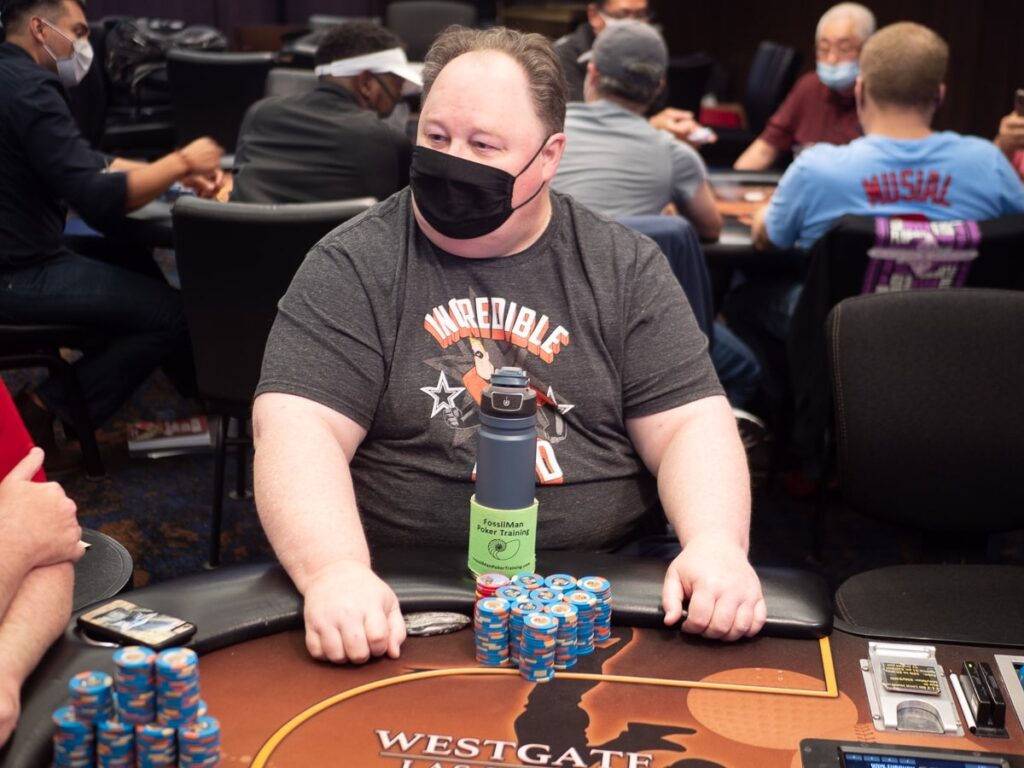
“I would say I probably don’t get enough credit in some regards because I don’t have a second bracelet. It wouldn’t have mattered really how much money I’d won or even if I’d had 50 final tables instead of just 50 cashes, I think people still might say “But you haven’t won a second bracelet”.
If you’d asked me in ‘05 before the series started, “If you play every World Series for the next 15 years, how many bracelets do you think you’ll have?” I would have said at least three or four more. So I do feel like I’ve underperformed at the World Series, even though I’ve been making money.”
Ryan Riess
“I won the Main Event and then the couple years after that I was playing really high stakes, like $100ks and $25ks, and I wasn’t that good at the time. I thought I was really good, but I really wasn’t.
I just won the Main Event so I’m a 23-year-old kid with a lot of money, so I just jumped right into the waters with all the sharks with all the best players in the world, playing really high stakes, and it didn’t work out.
I took a step back, started playing lower stakes, and then I was able to really work on my game and get better. And then I was successful.”
“I’m a 23-year-old kid with a lot of money, so I just jumped right into the waters with all the sharks.”
Chris Moneymaker
“My biggest problem is that right after I won the Main Event, my second tournament I played I got second in, which was a WPT event. When you start your poker career winning the Main Event then getting second in the WPT, you kind of feel like you know what you’re doing. And that unfortunately breeds complacency.
I didn’t study the game of poker, and I didn’t focus on trying to improve for many years. I didn’t play a whole lot, so for the next couple years when I was playing, I was making runs but I wasn’t winning tournaments. I wasn’t getting in the money a whole lot. I would blame a lot of it on bad luck instead of the fact that everybody’s getting better. Instead of getting 3-bet with aces, kings and ace-king, now I’m getting 3-bet with queen-five. I’m getting exploited and I didn’t see it.
So if there’s one thing I could go back and change it would be to study the game of poker earlier on. I was still making good money, but all the elite players were getting so much better than me, and I didn’t see it.”
Joe Cada
“I think motivation is a tough thing – I noticed my competitive spirit kind of took a back seat. I remember when I was a teenager I just played all the time, I was so determined and I didn’t fear anyone at the felt. It was all about getting better.
Then after winning the Main Event I realized I’m not putting in the hours. It didn’t feel the same after winning that kind of money. I never really cared about money, it was just about making a good life for myself. And once I won the Main Event, that happened, and so now when I go back and play poker I don’t have that same motivation.
But I play because I really love the game. I enjoy the game and I’m still successful with it, but I’m aware that there are really good players out there and I’m not the same player I used to be in terms of the time I’m putting in.”
“It didn’t feel the same after winning that kind of money….now when I go back and play poker I don’t have that same motivation.”
Martin Jacobson
“If I can take the experience that I’ve gathered and everything I’ve learned, and compress that into really useful information and then give that to someone who’s only played like two or three years, I think they can grow and become a much better poker player in a really short and efficient time. That’s something that’s really exciting for me and also I find it really valuable because you get so much fulfilment, it’s hard to explain but I think just teaching in general is something that’s very fulfilling because it’s all about sharing.
You’re sharing what you learn and you see that somebody else appreciates it and then to be able to see them grow as a poker player and hearing about their results…it’s just amazing to hear and that to me is so much more fulfilling than just playing poker by myself.”
Jamie Gold
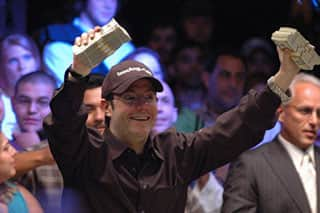
“When I go to the World Series of Poker now I root for my friends more than myself. I love coaching people and helping people – I’m a much better coach than I am a player, because I don’t make mistakes as a coach! I don’t believe that I’m the best player in the world, I think that I’m just a really great coach.
I try to give back as much as I can. I’ve been so fortunate in my life and I’ve learned a lot.
It’s not like I wouldn’t want to win another poker tournament, and it’d be really fun if I did, but it wouldn’t mean as much to me as helping somebody else be able to do that.”
Phil Hellmuth
“I don’t miss that era [the 1990s]. It was great, but there weren’t as many players in the tournaments. All the best players would all be in the same place at the same time, whether that was Atlantic City, London, Vegas or L.A. When I went into a room, I’d know 30-40% of the players and that was nice, but the prize pools weren’t as big.
It was always family first for me. In 1997 I made a decision: I don’t want to burden myself and play all the time, and I wanted to be there for my kids. I wanted to watch them grow up, coach their basketball teams, coach their soccer teams.
And so being there for my sons and my wife, that’s ‘Phil Hellmuth, the person’, and I’m there for my friends and they’re there for me. And it’s led to some great relationships. We’ve had the same people playing in my poker game since 2009.
I will never retire from poker. I’ve been fortunate that I haven’t burned myself out on the game. I still love poker, and I think I’ll continue to love it forever.”
Poker Advice from the WSOP Champions
Martin Jacobson
“Move up slowly in the stakes. If your goal is to play live events or big tournaments, play small satellites to get into the bigger satellites. That’s what worked well for me: I didn’t buy in for the last step to win the WSOP Main Event package back then, I won a $20 ticket, then I won a $700 ticket, then a $2,000 ticket, and then I won the Main Event seat. I think that’s a good strategy because you’re not risking that much and you’re getting experience along the way.”
Ryan Riess
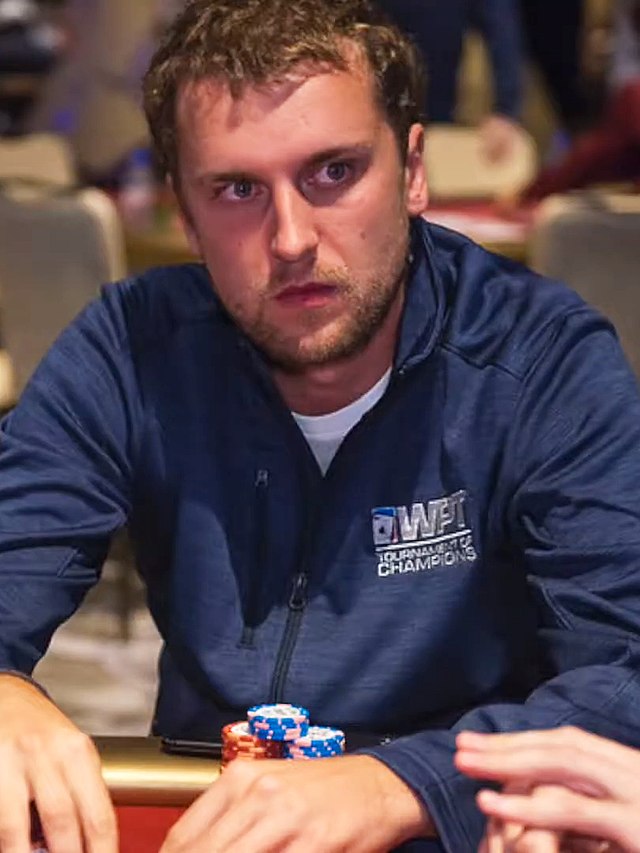
“I’ve never been a big study guy, it was mainly just playing and also just maturing.
I used to be kind of crazy; my play style was that I would just bluff way, way, way too much, and so just calming down and not trying to take every spot, taking it more seriously and not splashing as much.
Because when you have like a lot of money and you’re young, you can be careless, and I felt like I was doing that to some degree and then you start to lose a lot of money.”
Joe Cada
“I’ve never looked at money as like, “What I can buy?” or how meaningful it is, or how big this spot is. So even during the Main Event final table I looked at it more as a game, and always a game, and just how do I win at this game and what’s the best way to approach it?
The money has never really felt real to me in a way; I don’t know, maybe that helps me just not be attached to it and make the right play, and not be fearful of the outcome. But you learn from your mistakes as well, and I think it’s just playing so much and having so much experience, and being in those spots.”
Chris Moneymaker
“One of the best ways to learn poker for free is on Twitch. You can actually go out and watch poker from really good players that will answer your questions in real time. They’ll tell you their thought process.
Twitch is an amazing platform for poker and it’s something that, if it was around 20 years ago, would have been a real nightmare for me. The amount of poker knowledge that’s out there right now is phenomenal…Pay attention, take note of what some of the good streamers are doing, then find one that fits your style. Ask questions and they’ll often answer them.”
“The amount of poker knowledge that’s out there right now is phenomenal.”
Jamie Gold
“I do think that all players should learn all styles. You should always be changing gears and playing in different styles, but also learn everyone’s style so that you’ll see it when it’s happening to you.
A lot of what you want to learn in poker has nothing to do with how you play, you need to learn how everyone else plays. That’s why the game changes every year or two, and players are playing differently now than they used to.”
Phil Hellmuth
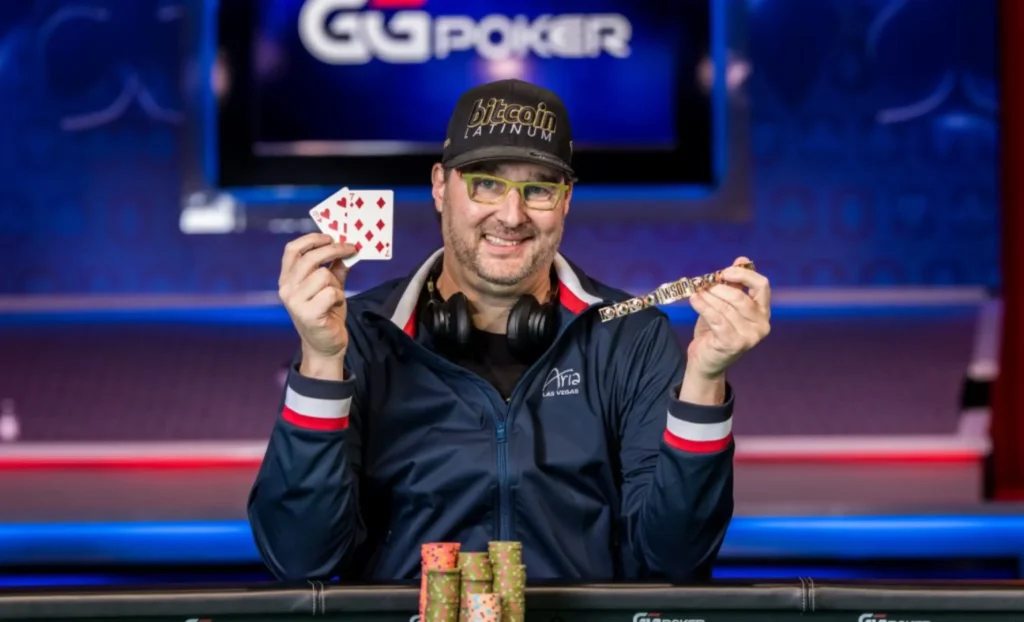
“I didn’t study GTO [game theory optimal play], so I’m not going to be the best – if you want to learn GTO, don’t come to me. But if you want to understand why a play makes sense from a game theory point of view, I’ll have my opinions which have proven to be valid over and over again.
The World Series of Poker needs me. It needs people like Daniel Negreanu, or the other veteran stars. My emotions flow freely. And the one thing you can say when you watch me is that it’s authentic. When I’m pissed off, I’m screaming and yelling. Maybe 90% of the people can relate to that emotion.
Now, half of those 90% will say, “I would never act that way. This guy’s a jerk and I don’t like him.” But they keep watching.
The other half are like, “This guy’s my hero, he speaks his truth and he’s pissed off and he hates losing.” And then they keep watching.”
Greg Raymer
“The one big lesson I think you can get from poker, once you understand the game well enough, is that you have to kind of ignore the results. It’s like, “Was this a smart decision, yes or no?” The fact that you then won or lost the pot is not really directly connected to how smart the decision was. If you go all-in and I call with two aces and you beat me, I’m still gonna lose some percentage of the time, so that result doesn’t mean anything.
So the important part is learning to completely dissociate the result from the process. Focus on the process, focus on making smart choices.”
“The fact that you then won or lost the pot is not really directly connected to how smart the decision was…Focus on the process, focus on making smart choices.”
More on the World Series of Poker
Looking for the WSOP schedule, details of the WSOP Main Event or the history of the World Series of Poker? Check out the CardsChat WSOP guide now. For more interviews with poker’s biggest names, check out the CardsChat Podcast.
Want to try No Limit Texas Hold’em, for free? Head to our no-risk practice tables.
Ready to play for real money? Read our guide to the best online poker rooms around.
Images for this article come courtesy of Chris Wallace, the World Poker Tour, 888Poker and Wikimedia Commons.